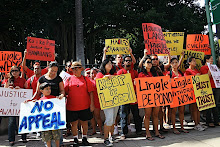You can watch our third webcast below by clicking on the arrow on the video feed.
Unfortunately, it looks like the recordings of our live-stream webcast do not have the text overlays on the video, so you can't see the text on the video screen while we're talking, like we intended.
Subscribe to:
Post Comments (Atom)




This is what I got out of the short video as to the purpose of kupu'aina through its statement:
ReplyDeleteConcerns with U.S. Supreme Court traditionally not native friendly; thus there would not be a fair hearing.
Governor's statement that Native Hawaiians have no claims.
Prefer to attack the immediate threat rather than incorporate the broader argument; ergo having a coalition with all groups regardless of platform to rally around this threat.
To argue under the state's perspective and premise of its view of validity.
...............................................
The problem I see:
Accepting the conditions premised by the state, acknowledging its legitimacy.
It's not doing justice to the issue.
It cannot be answered without going to the origin of the violation and theft.
The arguments don't go far enough: e.g., the theft committed, is over-looked. The thief is in possession of the property stolen and is trying to fence the stolen property. The true owner claims the property that is stolen and seeks its return.
The basis of the argument is the origin of the theft to begin with is logical.
The thief is arguing on the premise that it is in his possession and not the owner who no longer has outright possession of the property and 9/10ths possession is the law. The argument then should start with who has the current possession of the property in question; which is where the contest should begin is what the thief is instructing the courts to decide: who owns the property; to do as the holder of the property chooses; to discount the history of the property and who has possession of it now.
It is foolish and not justice to play only within the thief's sandbox. This cannot be adjudicated justly unless the source of the criminal act is acknowledged and the property is return to the true owner.
International law is not broad nor vague. Re: Hawai'i, it is very specific.
Simple fact!
Tane